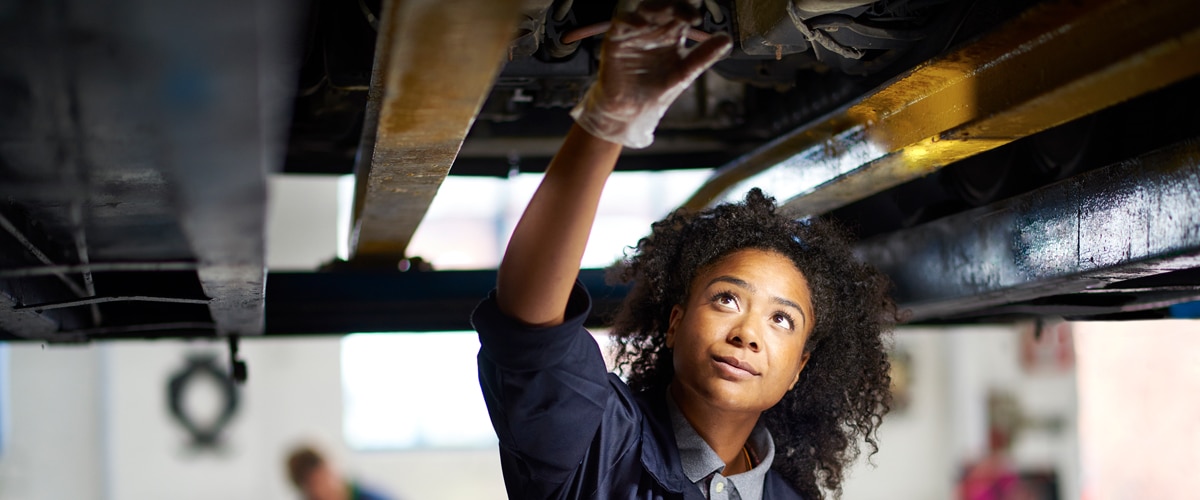What isn’t covered in the manufacturer’s warranty?
November 19, 2020
Everything You Need to Know About Factory Warranties
If you are in the market for a new car then you’ve likely seen some mention of the “factory warranty” that comes with it. The warranty will typically include a new vehicle limited warranty but it also may come with a powertrain warranty as well depending on the manufacturer. While the factory warranty may not seem like it is important to the sales process, it is. You should definitely understand what exactly the coverage is under the factory warranty as well as the length of that coverage. This can be a huge factor when deciding which new car to purchase.

What is a Manufacturer’s Warranty?
A manufacturer’s warranty is the automaker’s guarantee that if problems occur within a certain amount of miles and time period, they will be responsible for the repairs. The price of the warranty is built into the sales price of the vehicle but it is there to assure the buyer that if anything major does go wrong the manufacturer will step in to help fix it.
Every warranty is different depending on the manufacturer, you can find exactly what your warranty covers by going to your car manufacturer’s website or by calling one of our team members at any of our locations. On average, according to Auto Consumer Info, the warranty can include a powertrain warranty, maintenance, and emissions coverage. New cars typically have a three-year or 36,000-mile manufacturer’s warranty. That said, anything that fails because of routine maintenance items or overall wear and tear typically aren’t included.
What Is a Powertrain Limited Warranty?
According to Carchex, a powertrain limited warranty usually lasts for five years of up to 60,000 miles. This type of warranty typically covers your car’s:
• Engine
• Drive components
• Transmission
Your vehicle’s manual can tell you what isn’t included under your warranty. It usually lists things like:
• Fire
• Misuse
• Improper repairs
• Lack of maintenance
• Water contamination
• Problems caused by normal wear and tear
How a Warranty Applies for Used Cars
One question that often comes up is whether a used car will have warranty coverage. Unless the warranty hasn’t yet expired, most used vehicles will not have warranty coverage. The only exception is certified pre-owned (CPO) vehicles that have some kind of warranty. CPO is often included in the cost of a vehicle.

The Federal Trade Commission (FTC) requires used car dealers to put a buyer’s guide on the side window of every car, and the warranty information is included in that guide. In some cases, the manufacturer’s warranty may still apply. If not, the manufacturer’s used vehicle warranty may apply. You will see that a box is checked or unchecked for each.
Implied Warranty
While this isn’t something you’ll typically see in a contract when you purchase a used car, an implied warranty is provided by state law. There are, however, two different types of implied warranty:
• Warranty of Merchantability: This type of warranty essentially says that a car is supposed to run and that if it doesn’t, the dealer has to fix it (unless you agreed to purchase t he car “as is”).
• Warranty of Fitness for a Particular Purpose: This is an assurance that the car is suitable for use for a certain purpose, such as hauling a trailer.
As Is
If you buy a car “as is,” nothing is covered by the manufacturer or dealer. That said, you may be able to purchase a dealer service contract within a certain number of days after buying the vehicle.
Different Types of Warranty
There are different types of warranties available when you purchase a car:
Factory or Manufacturer’s Warranty
A manufacturer’s warranty covers only certain problems with the vehicle. It’s typically included with the cost of your car and ends after a specific amount of time passes or when you reach a certain number of miles.
Extended Warranty
An extended warranty is also referred to as a service contract. Though it’s called a warranty, it technically isn’t one, as defined by law. The extended warranty is an extra cost that is added on top of the price you pay for your car. It typically extends the time of coverage provided by your manufacturer’s warranty. Always have your dealer put in writing what’s included in your extended warranty — and what the cost of the repairs will be without one — before you move forward with the purchase of an extended warranty.
An extended warranty may include:
• All major vehicle systems: If you purchase a bumper-to-bumper extended warranty it includes all items.
• Powertrain: This includes the engine, transmission, and other parts of the system.
• Corrosion: This may protect you from paying for rust damage.
• Roadside assistance: May include roadside assistance, including towing, trip interruption service, and more.
• Normal wear and tear: Some extended warranties will cover repairs and replacements from normal wear and tear.
After your manufacturer’s warranty expires, your repairs will no longer be covered. If you purchase an extended warranty, you may be able to offset the cost of repairs.
Bumper-to-Bumper Warranty
According to Auto City, this is the most comprehensive coverage you can get for a car. That said, it does exclude a shortlist of components on your vehicle. This type of warranty is usually available for both the factory and extended warranty. While your warranty may last longer, most bumper-to-bumper warranties are for three years of 36,000 miles.

Bumper-to-bumper coverage usually includes:
• All major systems
• Heating and air conditioning
• Electrical components
• Safety features
• Steering
• High tech systems
• Hybrid vehicle parts
Powertrain Warranty
A powertrain warranty typically lasts for five years or 60,000 miles, longer than a bumper-to-bumper warranty. This type of warranty includes:
• Engine
• Transmission
• Driveshafts
• Axles
• Gaskets
• Transfer
Corrosion Warranty
This warranty covers the cost of repairing corrosion on your vehicle. Corrosion can occur because of damage to a car after a collision or as a result of salt, water, and other environmental factors.
Using Your Factory Warranty
A manufacturer makes a guarantee to a consumer regarding the condition of the vehicle. If the parts malfunction or don’t work as they’re designed to, the warranty is expected to cover the costs of the repair or replace the part altogether. In addition, the warranty will cover the cost of a rental car, since the owner’s car is in the shop being repaired.
It is important to keep in mind that manufacturers are strict about how a vehicle should be treated and maintained for warranty coverage to apply. Sticking to the schedule will keep your vehicle in the necessary condition to use the warranty without worrying about denials.
Contact Us